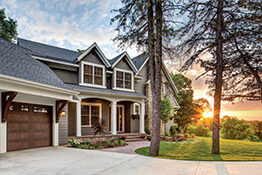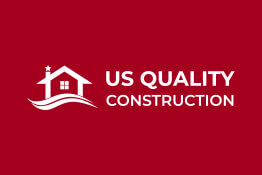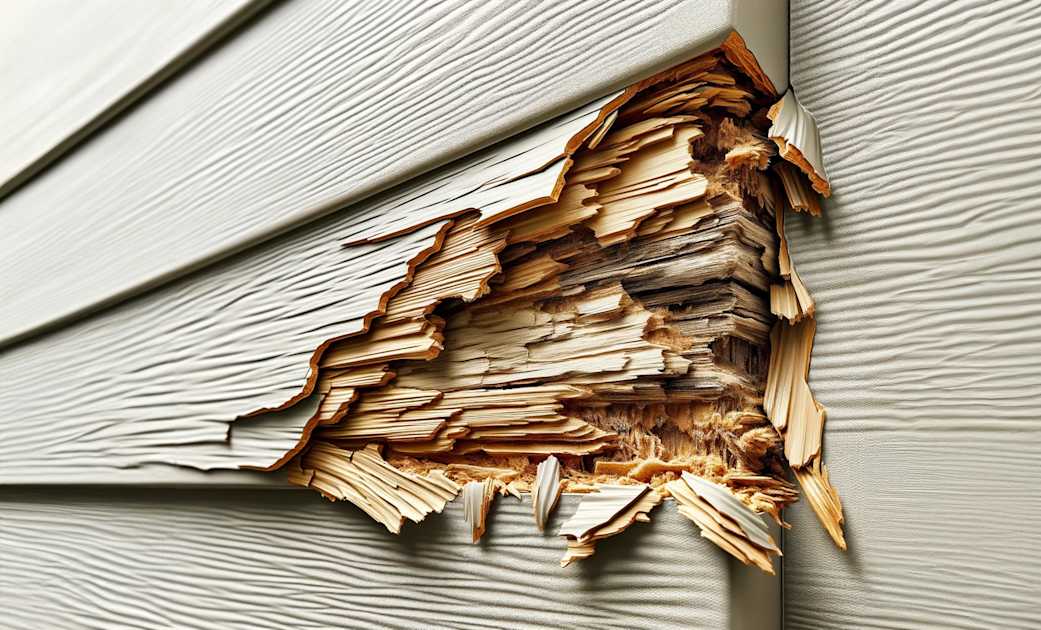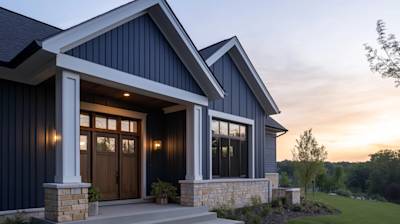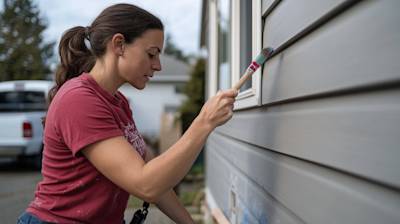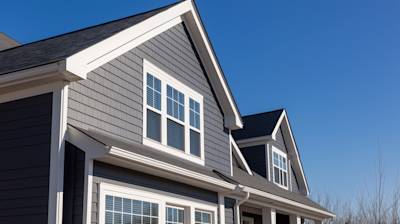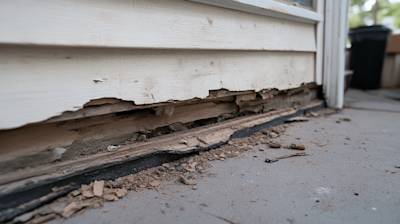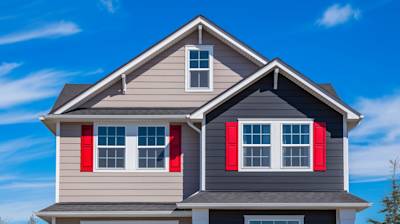While Masonite siding offers some impressive benefits including a natural wood-like appearance and cost-effectiveness compared to other siding options, it's also been associated with a variety of issues. In this article, we'll delve deep into Masonite siding, its common problems, and how you, as homeowners, can address these issues.
Understanding Masonite Siding
Masonite is a type of hardboard, a composite material made from wood fibers. It's named after its inventor, William H. Mason, who patented the process of creating this material in the 1920s. With its ability to mimic the look of natural wood, this material was once a popular choice for residential siding.
While it offers a beautiful, natural look and is more cost-effective than solid wood, its susceptibility to water damage and other issues has prompted many homeowners to reconsider its use. To a large extent, the durability of Masonite siding hinges on the quality of its installation and maintenance.
The Common Issues With Masonite Siding
Deterioration Due to Water Exposure
One of the most common issues with Masonite siding is that it can rapidly deteriorate when exposed to water. Over time, this can lead to extensive damage that may require total replacement of the siding. This is largely due to its porous nature which tends to absorb moisture, leading to problems such as swelling, warping, and rot.
Susceptibility to Pest Infestation
Like other types of wood siding, Masonite can also be prone to pest infestation. Termites, beetles, and other wood-boring insects can easily infiltrate and damage the siding.
High Maintenance
With the ongoing exposure to elements, Masonite siding requires regular painting or staining to maintain its appearance and to safeguard it from moisture intrusion.
Spotting the Issues Early
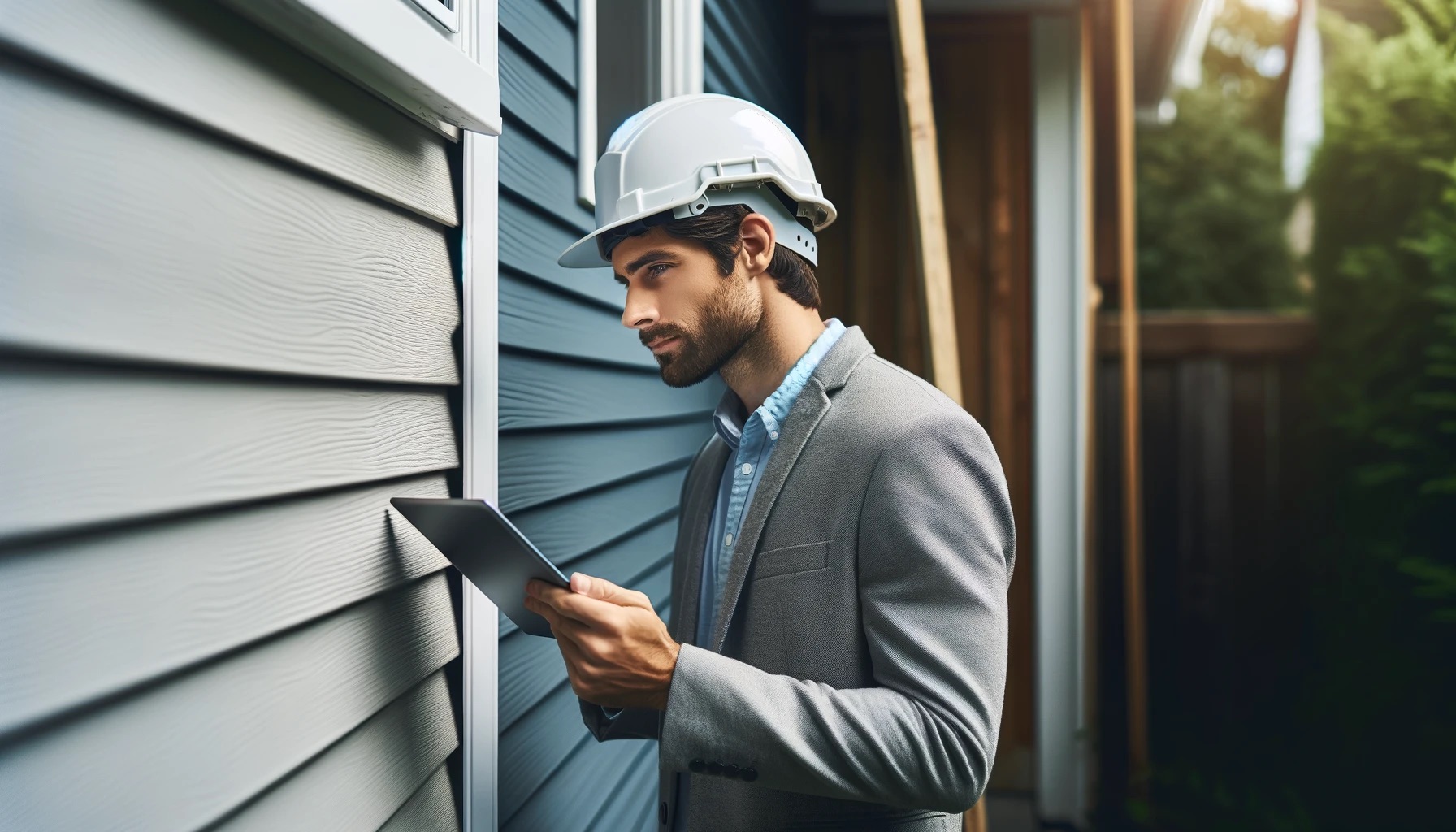
Regular inspection of your Masonite siding is essential in identifying problems before they evolve into bigger issues. Some warning signals to look out for include:
- Panels that have begun to buckle or warp
- Deterioration or discoloration of the siding's surface
- Fungal growth or signs of pest infestations
- Peeling, blistering, or cracking paint
- Visible spots of water damage or areas that stay damp
Ongoing Maintenance of Masonite Siding
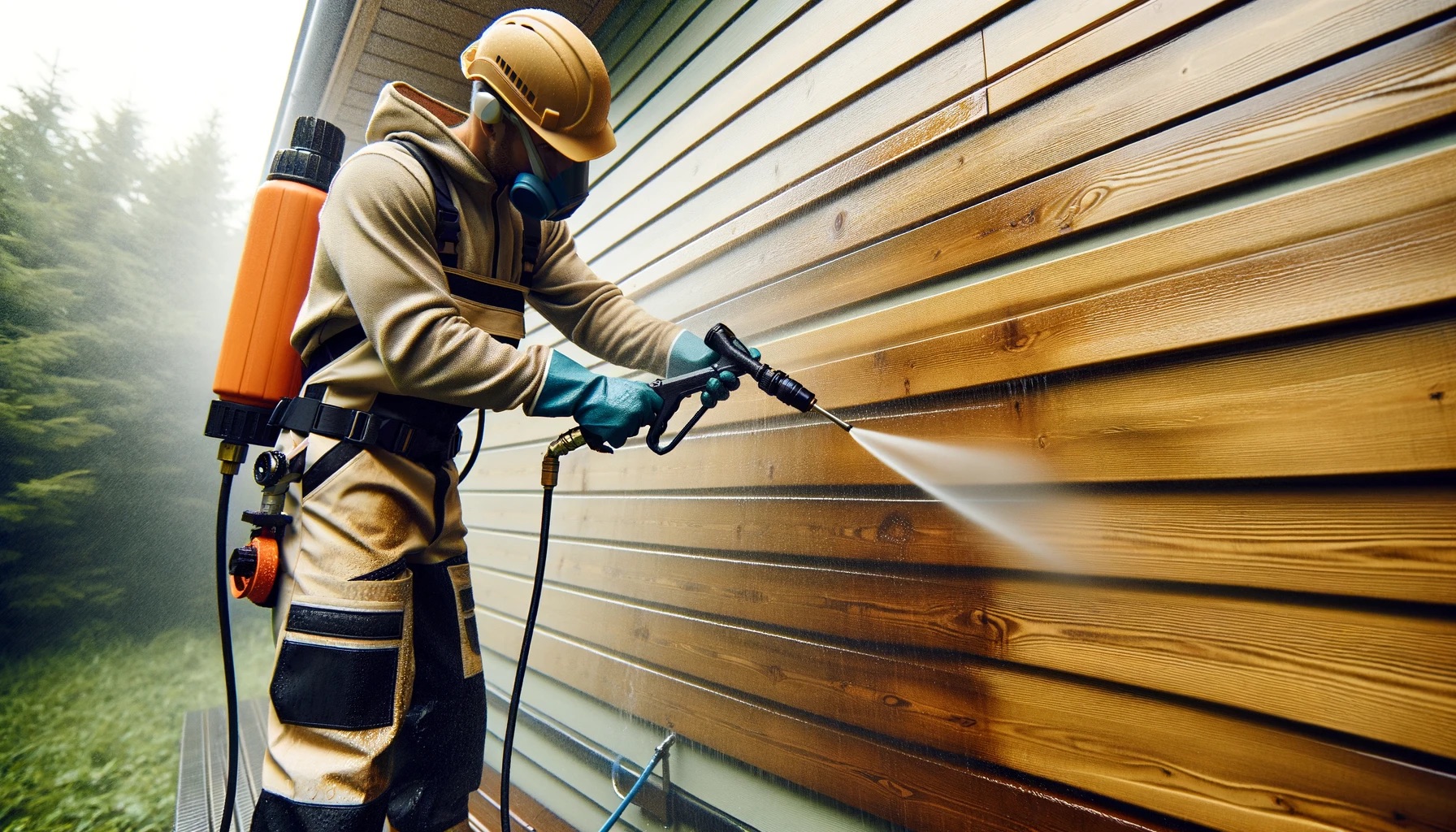
The lifespan of your Masonite siding largely hinges on the regularity and quality of its maintenance. Here are some steps to keep your siding in top condition:
- Regularly inspect your siding for signs of damage.
- Keep bushes and trees trimmed back to prevent them from scratching the surface or trapping moisture.
- Immediately address any signs of water damage or infestation.
- Regularly paint or stain your siding to create an additional moisture barrier.
Retrofitting and Replacement of Masonite Siding
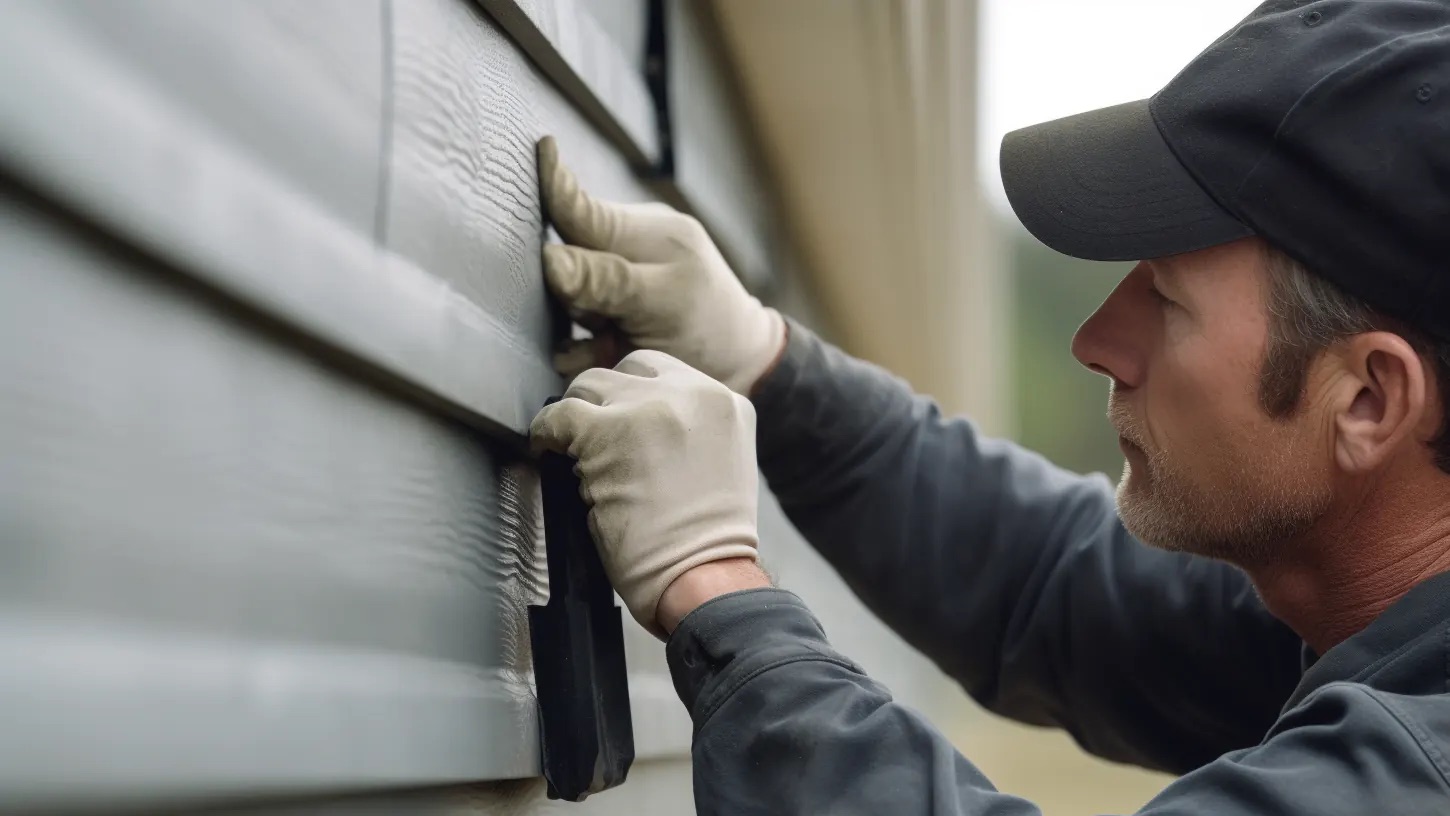
On many occasions, homeowners opt for retrofitting or replacing their Masonite siding with more durable and low-maintenance options like vinyl or fiber cement. These materials emulate the natural appearance of wood and come with longer warranties and less maintenance.
If you're experiencing issues with your Masonite siding, it's best to consult with a siding expert to assess your situation and recommended the best course of action.
Frequently Asked Questions about Masonite Siding
What Are the Key Features of Masonite Siding?
Masonite Siding, or also known as hardboard siding, is a type of exterior cladding that is highly valued for its aesthetic appeal. It is designed to mimic the look of traditional wood siding with the advantage of being less expensive and more environmentally friendly. Some notable features include its durability, aesthetic appeal, and typically a lower cost than traditional wood siding.
What Materials Are Used in Masonite Siding?
This type of siding is made from a combination of wood fibers, wax, and resin. The blend is then subjected to high pressure and heat to create a compact, uniform siding material. This process of manufacturing ensures that Masonite siding has uniform strength and durability throughout its entire surface.
What Are the Ideal Conditions for Installing Masonite Siding?
Masonite siding is ideally installed in moderate climates where there are no extremes of heat, cold, or moisture. This is chiefly due to the material’s susceptibility to moisture damage, swelling, and delamination when subjected to harsh weather conditions.
How Long Does Masonite Siding Last?
The lifespan of Masonite siding largely depends on the regional climate and how well it is maintained. In ideal conditions with regular maintenance, it can last for around 20 to 40 years. However, in regions with high humidity or heavy rainfall, the lifespan might be notably less.
What Is the Maintenance for Masonite Siding Like?
Since it's less resistant to moisture, Masonite siding requires more maintenance than most other siding options. Periodic painting or staining is necessary to keep the siding in good shape and prolong its lifespan. It also needs to be regularly checked for signs of damage or decay, particularly after extreme weather conditions.
How Can Masonite Siding Issues Be Fixed?
Masonite siding issues should ideally be fixed promptly to prevent further damage. Minor issues can often be addressed with repairs such as repainting or recaulking. However, extensive damage typically necessitates the replacement of the affected panels.
What Are Some Alternatives to Masonite Siding?
Should you decide that Masonite siding isn’t the best fit for your needs, other siding options are available. These include vinyl siding, which is a more durable and low-maintenance alternative, fiber cement siding that offers superior longevity and resistance to damage, or traditional wood siding for a more rustic and classic appeal.
Where Can I Get More Information About Masonite Siding and Its Issues?
For more detailed information on Masonite siding and its related issues, get in touch with local contractors or home improvement stores. Online resources can also provide further insights and help you make an informed decision about whether Masonite siding is suitable for your home.
Pros and Cons of Masonite Siding
Pros of Masonite Siding
Aesthetics
- Masonite siding presents a high-end wood appearance without the expense or maintenance requirements of real wood.
- It lends an attractive, natural look to homes.
- Masonite comes in a variety of styles and colors, allowing home owners to customize to their preferences.
Affordability
- Masonite siding is a cost-effective choice when compared to other types of siding, such as cedar or brick.
- The materials and installation of Masonite siding are less expensive.
Easy to Install
- Masonite siding can be easier to install than other types of siding, making the installation process quicker and less labor-intensive
Energy Efficiency
- With good insulation properties, Masonite siding aids in maintaining the temperature inside your home, promoting energy efficiency.
Durability
- If properly maintained, masonite siding can last a long time, providing excellent value for money over time.
Cons of Masonite Siding
It's important to be aware of potential masonite siding issues when considering this type of siding. Maintaining masonite siding can be both time-consuming and costly, which may outweigh the initial cost savings.
Maintenance
- Masonite siding requires regular maintenance to protect it from damage, which can result in higher ongoing costs. This includes regular painting to seal the material from moisture.
- If not correctly installed or maintained, masonite siding can experience issues like bubbling, swelling, or cracking because of water exposure.
Susceptibility to Moisture
- Masonite siding has a high susceptibility to moisture, which can lead to rot, warping, and mold issues if not properly sealed and regularly maintained.
- Climate is an important factor to consider, as masonite siding may not be the best choice in very humid or rainy regions.
Less Resilient
- Though cheaper, masonite siding is less resilient than other materials like brick or fiber cement and may succumb to damage more readily.
- It is more susceptible to insect and termite damage than other siding materials.
Hard to Repair
- Once masonite siding is damaged, it can be difficult and costly to repair. Depending on the extent of the damage, large portions of the siding may need to be replaced, which can result in color inconsistencies.
Environmental Concerns
- Masonite siding production involves the use of formaldehyde, a chemical that can have health effects.
- Waste from masonite siding can be hard to dispose of because it is not biodegradable, which raises environmental concerns.
In conclusion, while masonite siding offers an affordable and aesthetically pleasing option for homeowners, it comes with its own set of potential issues. Its proclivity for moisture damage, high maintenance requirements, and environmental drawbacks are some of the cons to consider alongside the appeal of its lower cost and attractive appearance.
Summary
Masonite siding, while once popular, has shown to come with various associated issues. As time goes on, many homeowners report problems such as swelling, rotting, and damage from moisture exposure. It becomes clear that masonite siding issues can quickly escalate if left unchecked, resulting in costly repairs and potential structural damage to your home.
Monitoring the state of your masonite siding is essential for preventing long-term problems. Keeping it painted and sealed can mitigate some of the masonite siding issues. However, it's not a failsafe solution. When damage becomes visible, it's often the indication of more sizable hidden issues, making it imperative to address any signs of decay immediately.
Given these potential masonite siding issues, considering alternative siding options can be beneficial. More modern, durable options like vinyl or fiber-cement siding prove to be more resistant to the elements and require less maintenance. Ultimately, while masonite siding may seem attractive upfront because of its lower cost, the long-term maintenance and possible issues might not make it the most cost-efficient choice.
About US Quality Construction of Columbus
Welcome to US Quality Construction of Columbus, your trusted partner in building dreams in Columbus, OH. With years of experience under our belt, we specialize in bringing a touch of finesse to residential and commercial construction projects, ensuring top quality service and result. A compassionate family-owned business, we understand the importance of getting every detail right in turning your vision into reality. Rest assured, no project is too big or small for us. We are dedicated to not only meet, but constantly surpass our client's expectations. Join us and embark your journey towards a better living and working environment with us today.
Tags: masonite siding, masonite siding issues, home improvement,
